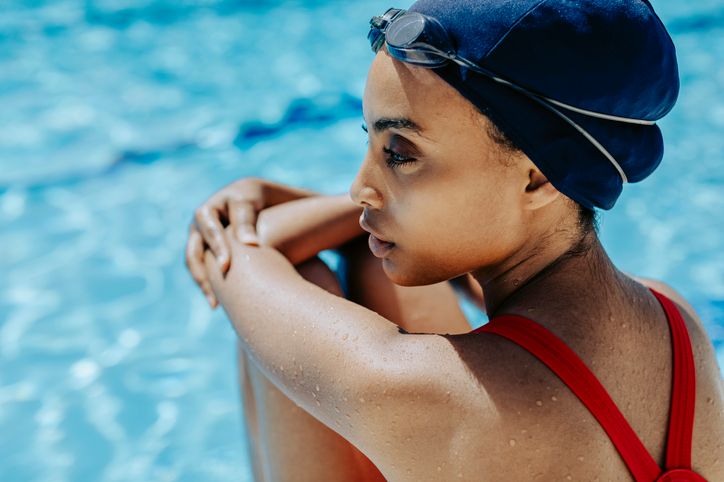
Source: Westend61 / Getty
If you’ve ever tried to get a swim cap over your natural hair, you know the struggle. SOUL CAP, a Black-owned swim company, designed a cap to address that issue and easily cover heads with thicker, curlier and more textured hair.
According to BET.com, FINA the federation for international competitions in water sports has denied SOUL CAP certification for wear during competitive swimming events.
FINA denied the caps, claiming that to their “best knowledge, the athletes competing at the international events never used, neither require to use, caps of such size and configuration.”
According to Metro.co, FINA continued by describing the caps as unsuitable because they don’t follow the natural form of the head.
SOUL CAP founders Toks Ahmed and Michael Chapman shared their disappointment in FINA’s ruling, calling it a “failure to acknowledge the diversity of competitive swimmers.” They note the ruling is particularly disheartening in a year when there has been an increase in swimmers from ethnic backgrounds qualifying for the Olympics.
Ahmed even pointed to the ramifications this decision may have on future generations of swimmers.
“For younger swimmers, feeling included and seeing yourself in a sport at a young age is crucial.” the co-founder said “FINA’s recent dismissal could discourage many younger athletes from pursuing the sport as they progress through local, county and national competitive swimming. How do we achieve participation and representation in the world of competition swimmers, if the governing body stops suitable swimwear being available to those who are underrepresented?”
Discrimination and swimming go hand in hand in American history. According to the YMCA, during segregation, there were strict laws around municipal swimming pools. Many of them were placed only in white neighborhoods, where Blacks were barred and faced the threat of violence or even death if they entered these areas. As a result, generations of Black folk never learned to swim.
In 2019, the USA Swimming Foundation found that 64 percent of African American children could not swim or had low swimming ability, even though 65 percent claimed they would like to swim more than they do. The YMCA also noted that African American children are three times more likely to die from drowning than white children.
With so many barriers in place for Black people even learning to swim, SOUL CAP founders hoped FINA would not present another in the denial of their cap.
Ahmed told Metro, “We feel the rejection comes from lack of thought, without full consideration for diversity and the different requirements non-white athletes may have. We feel there’s always room for improvement, but there’s only so much grassroots and small brands can do – we need the top to be receptive to positive change.”


